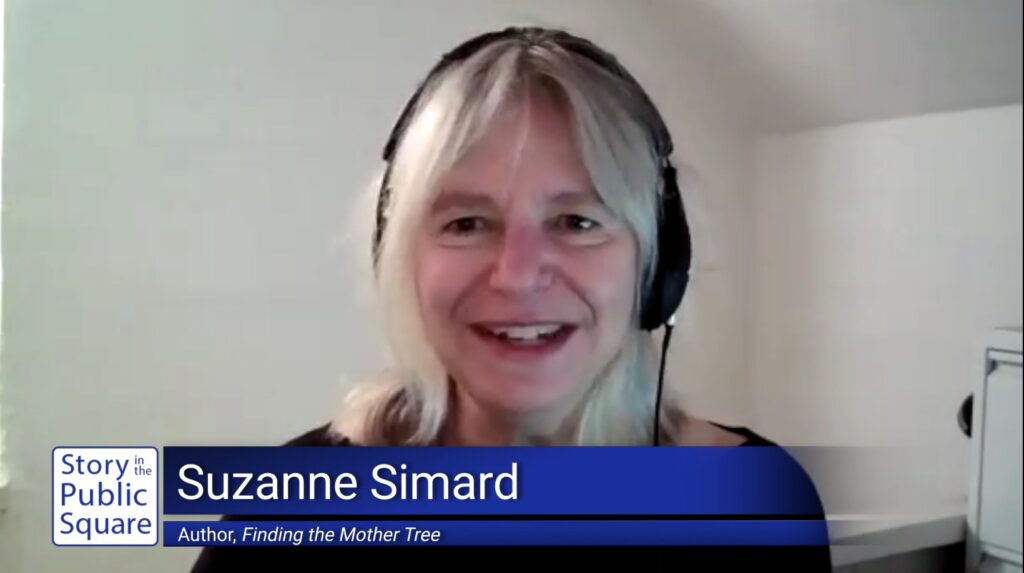Exploring Hidden Networks Below the Forests with Suzanne Simard
Air Dates: November 1-7, 2021
Forests have long been celebrated in literature as a repository or life and solitude. But Dr. Suzanne Simard says they are also an important repository of wisdom—a wisdom passed from tree to tree as they communicate with one another.
Dr. Simard is a Professor of Forest Ecology in the Department of Forest and Conservation Sciences at the University of British Columbia (UBC), Canada. She is particularly known for her work on belowground networks that connect the creatures of the forest, and how these are fundamental to the complex adaptive nature of ecosystems. At UBC, she facilitates a vibrant research program, a teaching program focused on forest ecology and complexity science. A strong contributor to the forestry profession in Canada, her research is motivated by her desire for protecting our fundamental right to a clean and healthy environment. She contributes to this goal by conducting scientific research on the synergies and complexities of our natural world and the development of sustainable land stewardship practices that both conserve and protect the environment. Her research is centered on understanding the vital relationships between plants, microbes, soils, carbon, nutrients and water that underlie the adaptability, resilience and recovery of ecosystems. She works primarily in forests, but also grasslands, wetlands, tundra and alpine ecosystems. She strives to communicate this research so that it is understandable and usable to all people and is dedicated to empowering people with science-based knowledge and tools to manage and heal the land from human impacts including climate change.
On this episode of “Story in the Public Square,” Simard discusses her New York Times best-selling book, “Finding the Mother Tree: Discovering the Wisdom of the Forest.” Her experience growing up surrounded by the logging industry in British Columbia continues to inform her research and descriptions of the complex, underground communication networks trees have evolved to use. They perceive one another through these networks, storing information about past climate fluctuations, and cooperate to mount defenses and better adapt to future environmental changes to sustain the forest as a whole.
“Story in the Public Square” continues to broadcast each week on public television stations across the United States. A full listing of the national television distribution is available at this link. In Rhode Island and southeastern New England, the show is broadcast on Rhode Island PBS on Sundays at 11 a.m. and is rebroadcast Thursdays at 7:30 p.m. An audio version of the program airs Saturdays at 8:30 a.m., 4:30 p.m. and 10:30 p.m. ET, and Sundays at 2:30 p.m., 10:30 p.m. and 2:30 a.m. ET on SiriusXM’s popular P.O.T.U.S. (Politics of the United States), channel 124. “Story in the Public Square” is a partnership between the Pell Center and The Providence Journal. The initiative aims to study, celebrate and tell stories that matter.

